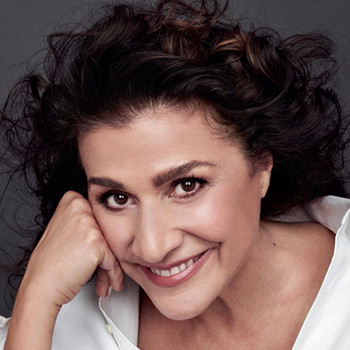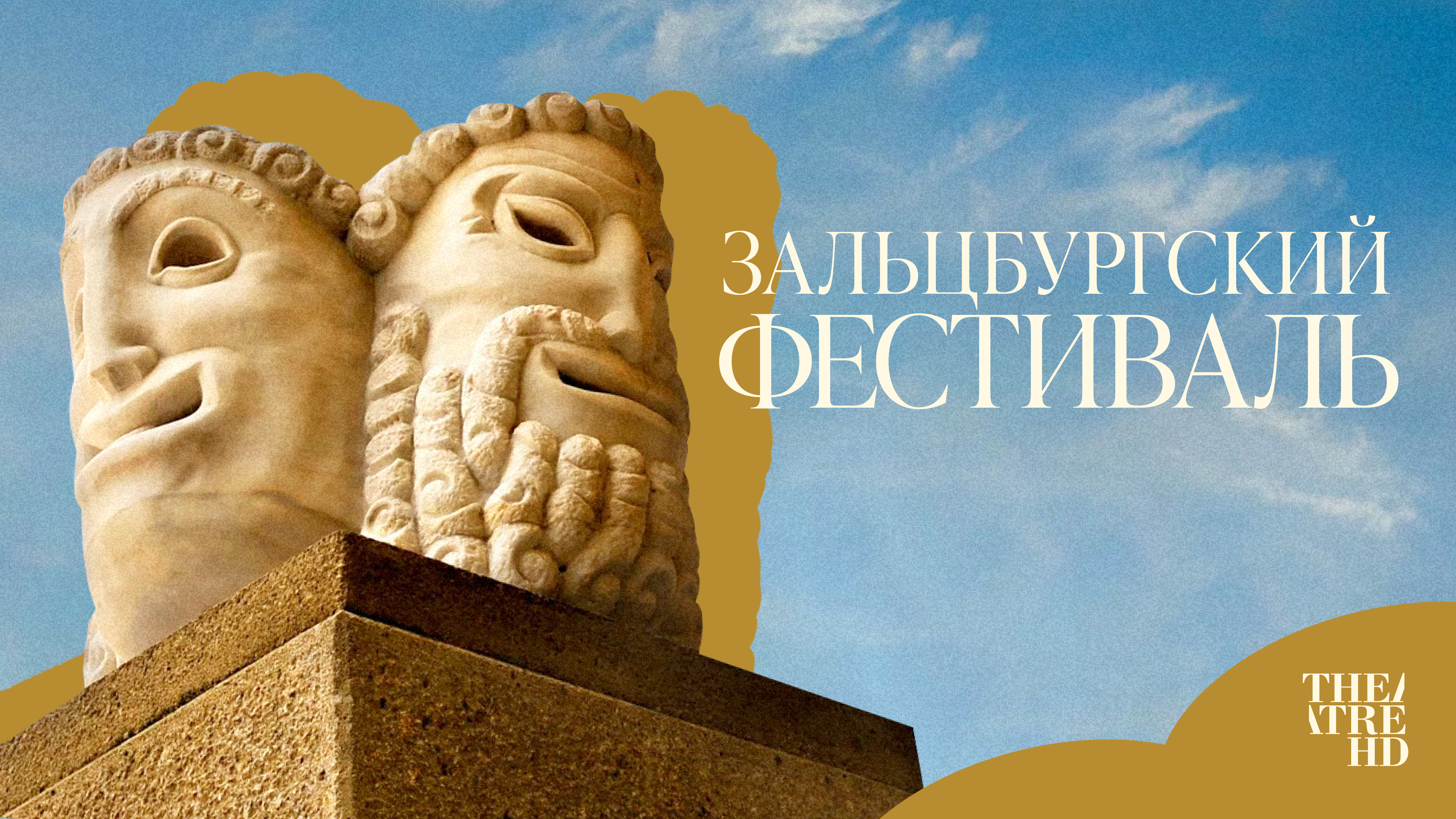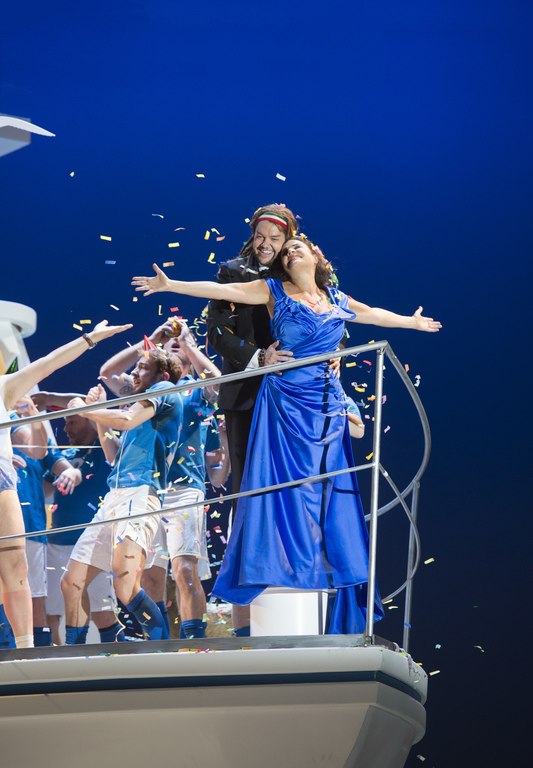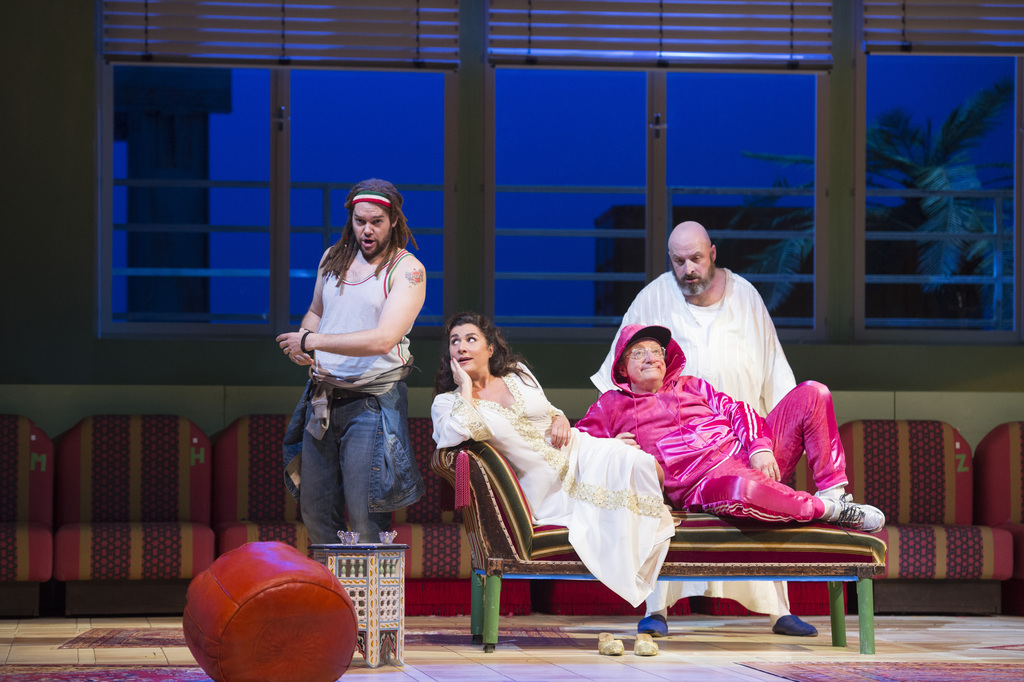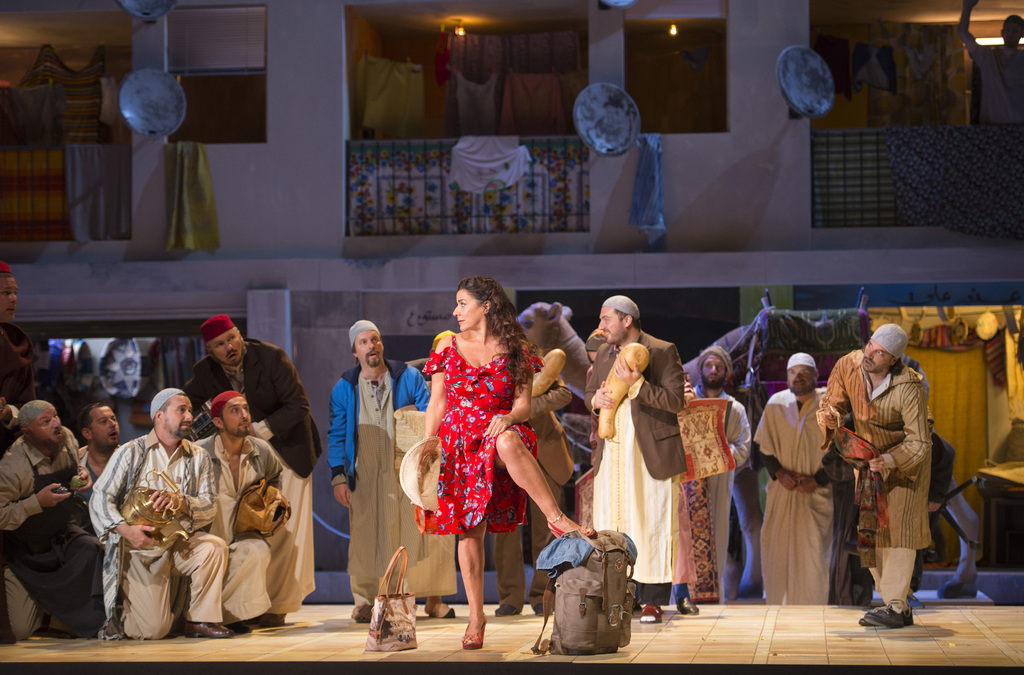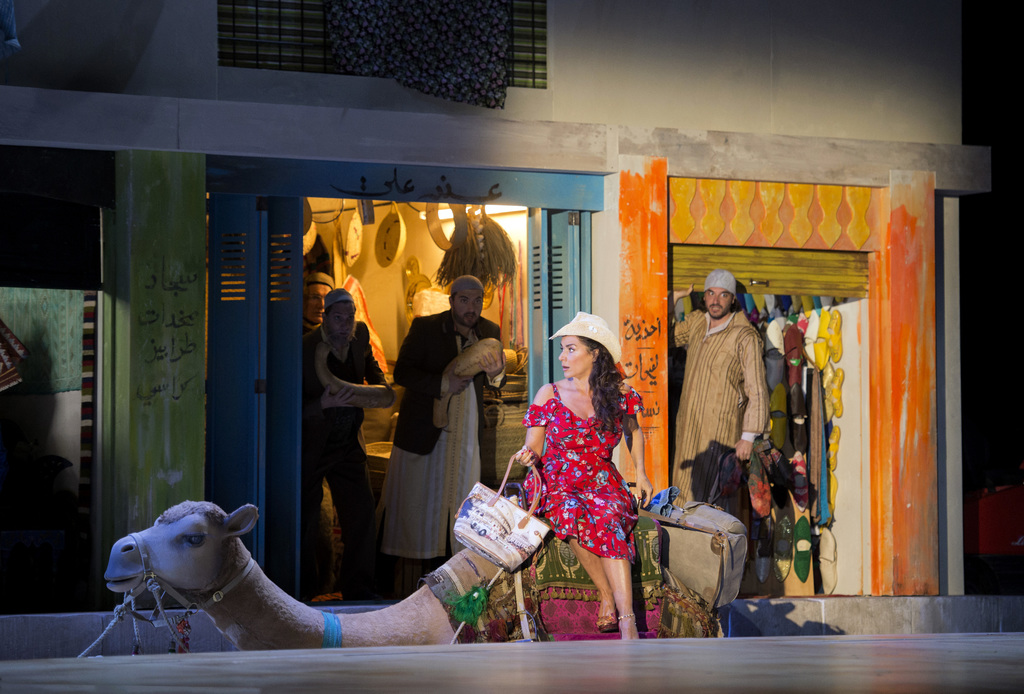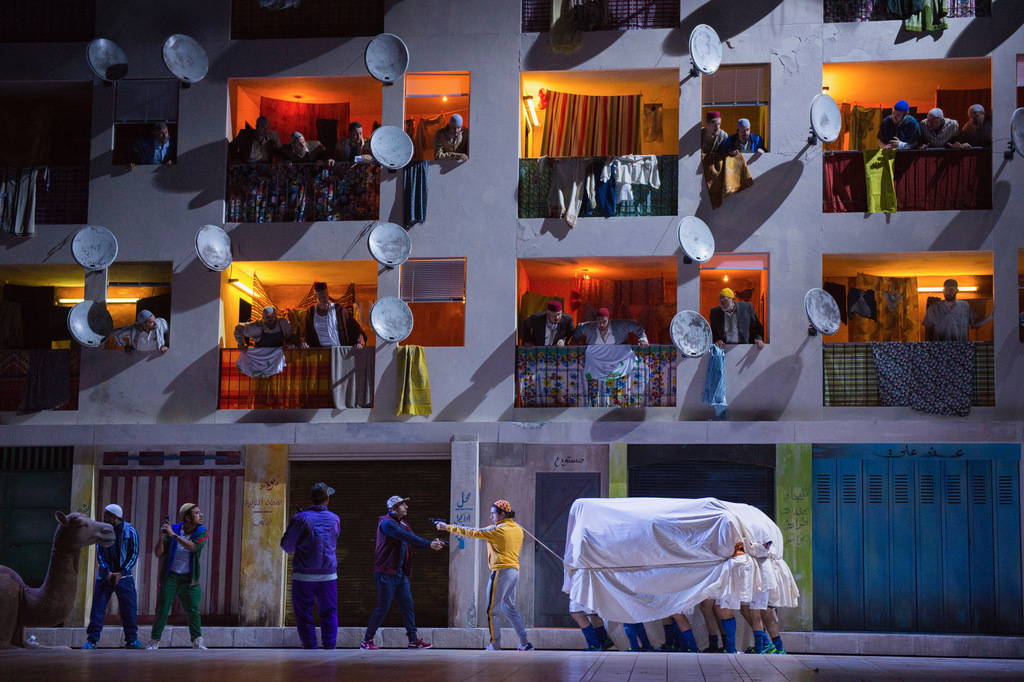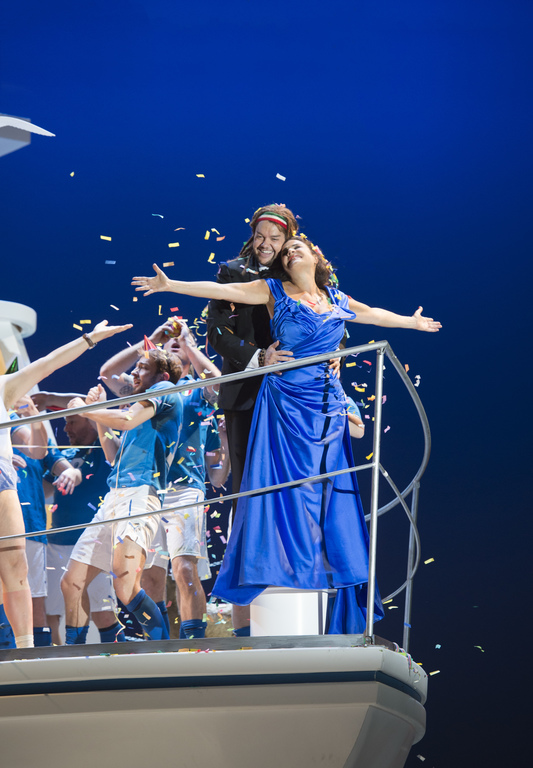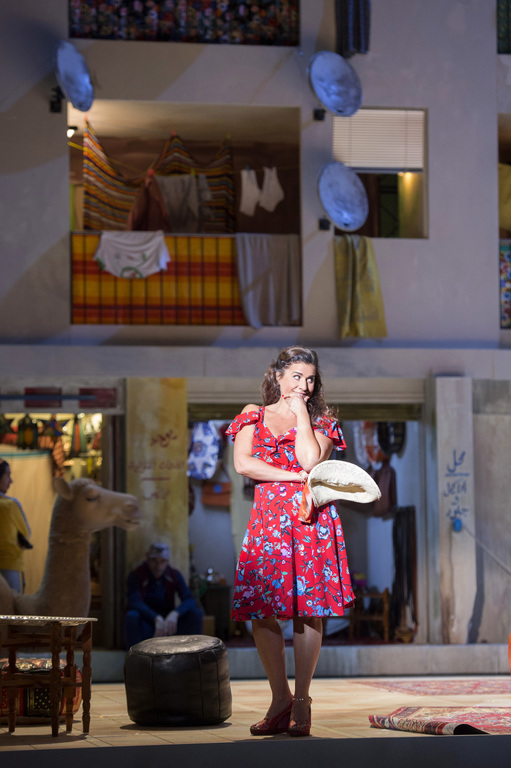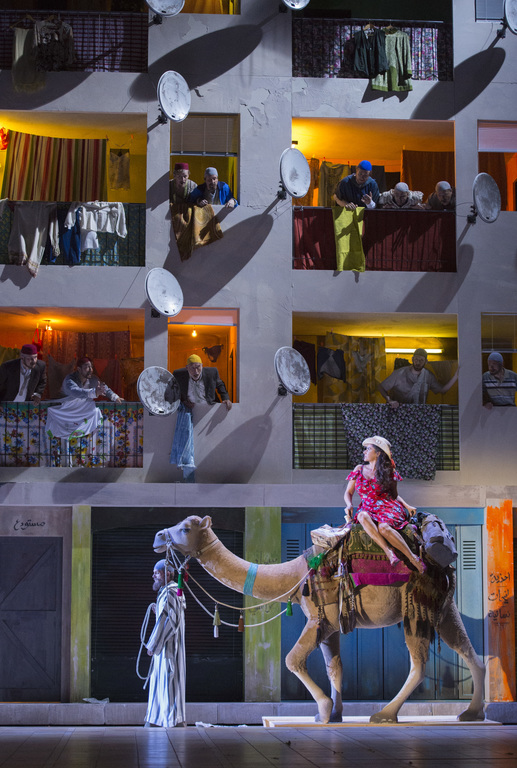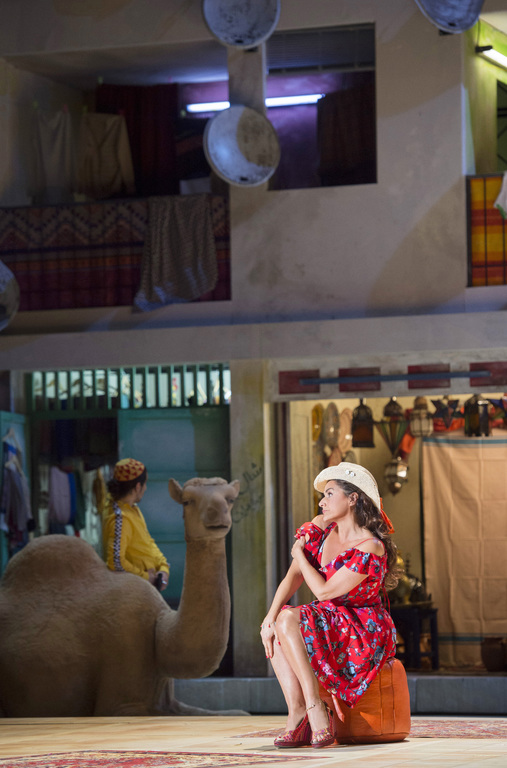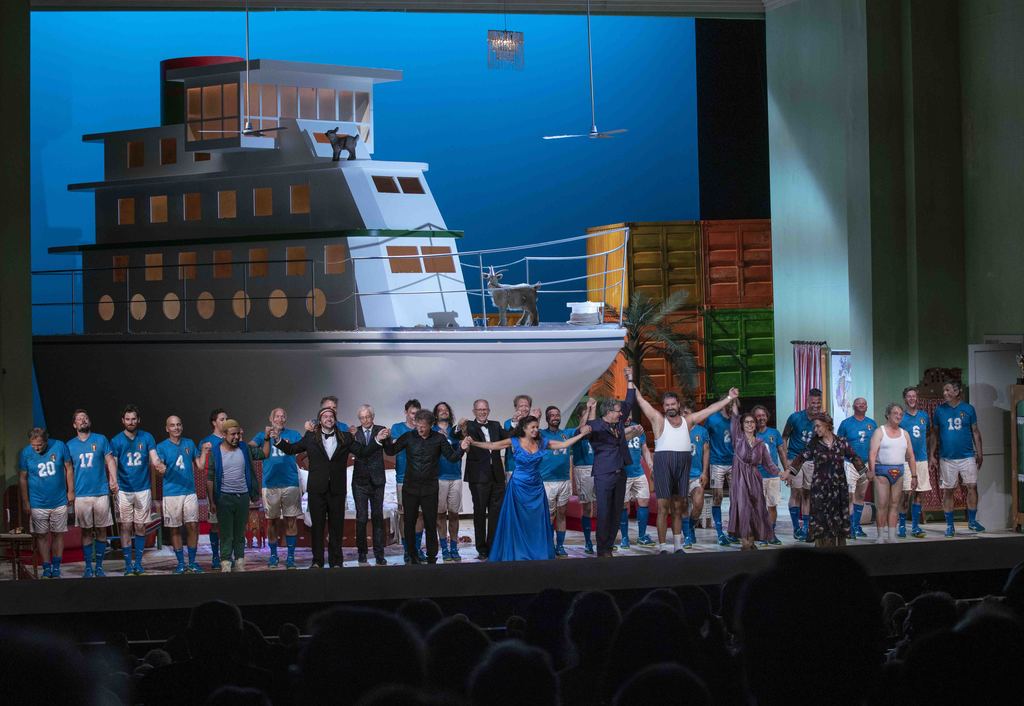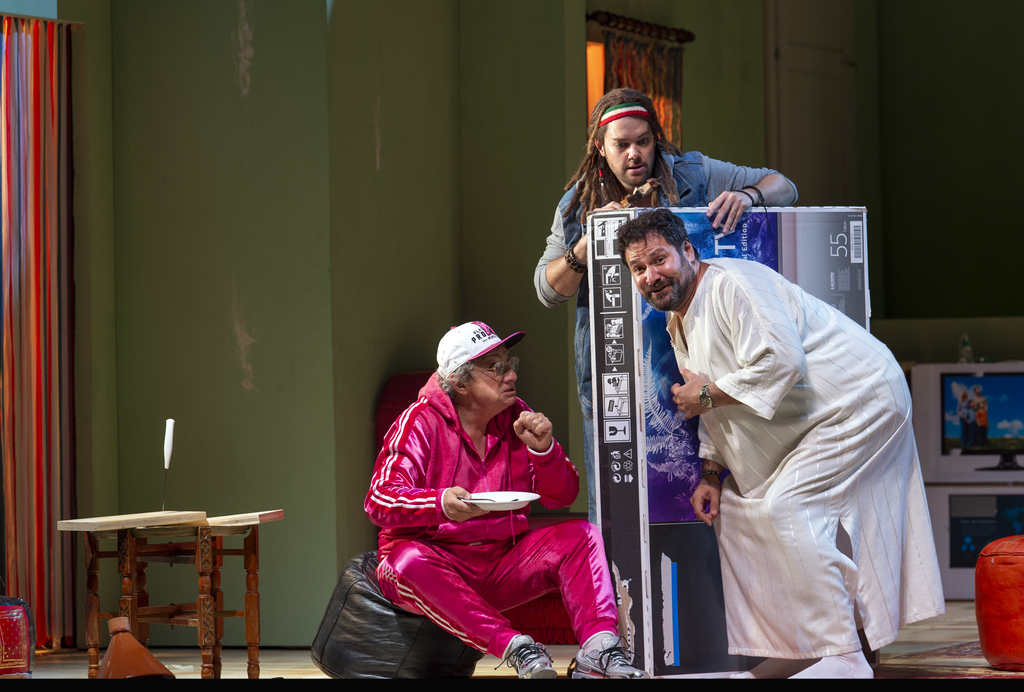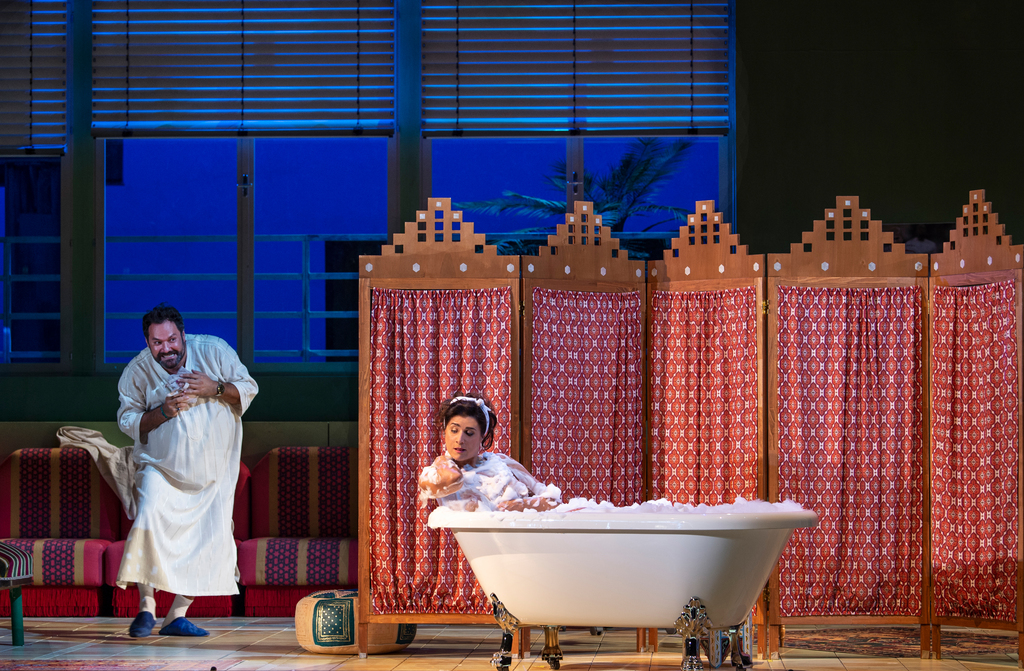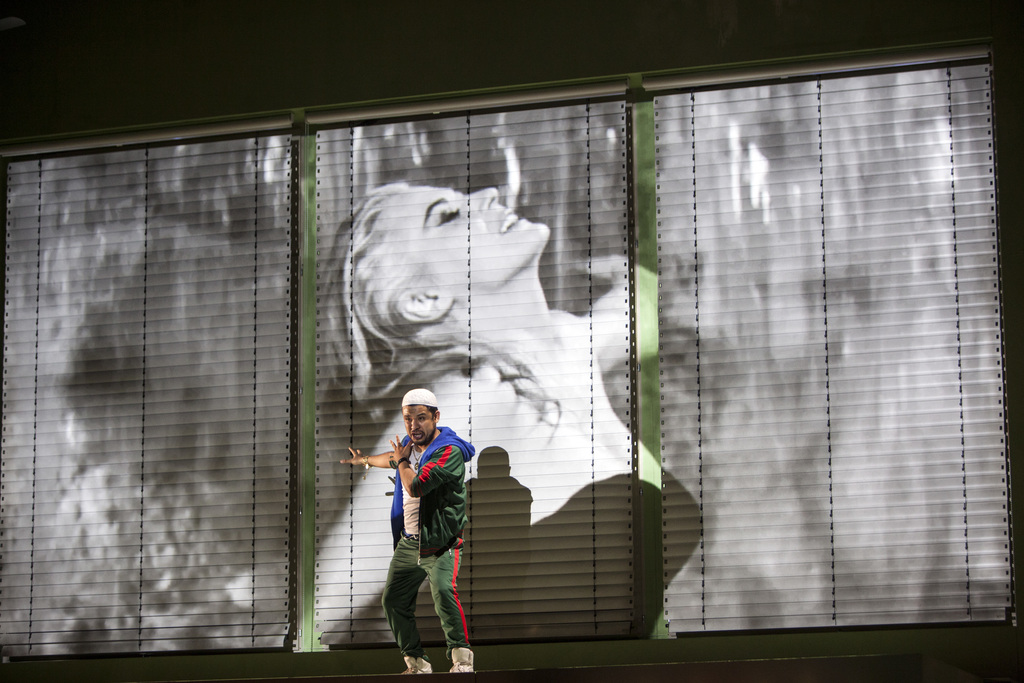Mustafà feels in urgent need of a ‘second spring’ in matters of love. But no woman in the geographical vicinity is suitable, least of all his wife Elvira. He finds Muslim women too ingratiating and submissive. What he’s after is temperament and exoticism, or to put it more precisely: the charms of an attractive Italian woman. One of these is what Haly, the Captain of the Corsairs, must procure for him, and within six days, otherwise he will be impaled. As Bey, Mustafà can’t be contradicted, and he’s also famous for his choleric temper, so Haly knows his situation is serious. It’s thus a fortunate coincidence when an Italian ship founders on nearby cliffs. Among the shipwrecked is Isabella, who’s searching for her beloved Lindoro. She is immediately selected by Haly to be the future star in Mustafà’s harem in Algiers. Resolute and unconcerned, Isabella is not so easily disconcerted by this – unlike her travelling companion and admirer Taddeo. Her first encounter with Mustafà immediately shows her the weapons she needs to gain the upper hand: coquetry and flattery. Soon Mustafà has completely lost his bearings.
Swaggering machismo does not mix well with emancipated femininity: L’italiana in Algeri (1813) – the first of Rossini’s ‘mature’ buffa operas (the composer was 21) – exhaustively exploits the comic potential of this clash, and in an intercultural context to boot. Like all ‘Turkish operas’, Angelo Anelli’s libretto, originally written for the composer Luigi Mosca, itself of course reflects a judgemental view of the Other. In the adaptation of the libretto for Rossini the character of Mustafà underwent a number of changes, which were reinforced by the music, moving away from a conventional buffo caricature to a man who – rather like Falstaff – despite all his delusion and self-conceit remains authentic and not simply ridiculous in his amorous wants. Nonetheless, he does not come close to the multifacetedness of the female protagonist: Isabella is full of energy and vigour, shrewd and courageous, but also capable of profound love and even patriotic pathos, as when she has to motivate Lindoro, whom she meets again as Mustafà’s slave, and the other Italians to attempt a risky flight from captivity.
The grotesque antithesis to Isabella’s great rondo ‘Pensa alla patria’ is formed by scenes that are rooted in the world of the carnivalesque, above all the crazy ceremony of Mustafà’s induction into the circle of the ‘Pappataci’. In order for Isabella’s escape plan to succeed, Mustafà has to be converted to a state of phlegmatic indifference: as a Pappataci he vows to devote himself to nothing more than eating, drinking and sleeping.
The fact that L’italiana in Algeri is still today capable of provoking the same rapturous enthusiasm in audiences as it did two hundred years ago is due to the way Rossini’s music stages all these events. The musicologist Paolo Gallarati locates the essential wit of the opera in the dialectic alternation between ‘dramma’ and ‘ludus’ (play), between ‘realistic’ passages, in which the singing brings the text alive in a flexible and nuanced way (Mozart is the unmistakable model here) and those mad Rossinian ensembles of amazement, confusion, fright, etc., in which subjects suddenly become objects, and human beings become puppets, having lost control over the situation and their own actions. Here – as at the end of the famous finale to Act I – pure music with its abstract geometrical laws takes over command, at the same time becoming the sonorous image of inner turbulence. In an eloquent phrase, Stendhal called this music ‘organized and complete madness’. Rossini’s surreal ludic ensembles surrender themselves wholly to the ‘physical joy of rhythm and sound’ (Luigi Rognoni). The listener is drawn ineluctably into the music. But the dissolution of the individual that Rossini accomplishes here might give rise to the fearful question of just how certain our certainties actually are…

